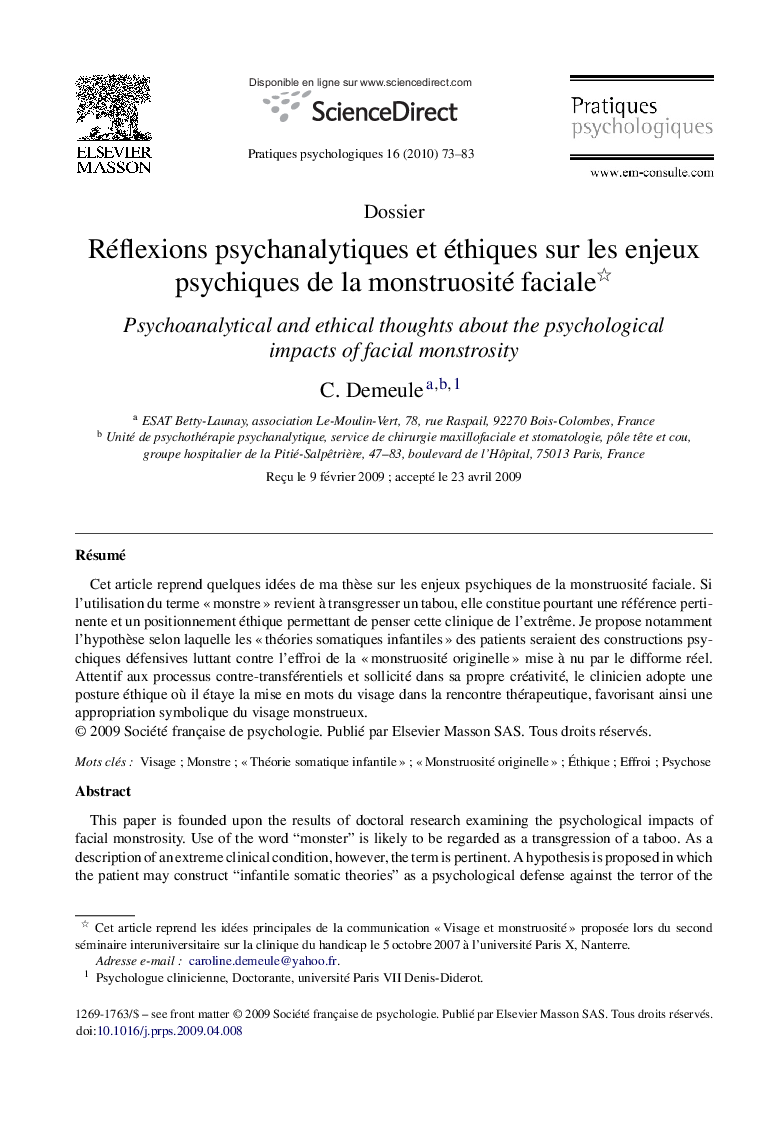| کد مقاله | کد نشریه | سال انتشار | مقاله انگلیسی | نسخه تمام متن |
|---|---|---|---|---|
| 893734 | 914431 | 2010 | 11 صفحه PDF | دانلود رایگان |

RésuméCet article reprend quelques idées de ma thèse sur les enjeux psychiques de la monstruosité faciale. Si l’utilisation du terme « monstre » revient à transgresser un tabou, elle constitue pourtant une référence pertinente et un positionnement éthique permettant de penser cette clinique de l’extrême. Je propose notamment l’hypothèse selon laquelle les « théories somatiques infantiles » des patients seraient des constructions psychiques défensives luttant contre l’effroi de la « monstruosité originelle » mise à nu par le difforme réel. Attentif aux processus contre-transférentiels et sollicité dans sa propre créativité, le clinicien adopte une posture éthique où il étaye la mise en mots du visage dans la rencontre thérapeutique, favorisant ainsi une appropriation symbolique du visage monstrueux.
This paper is founded upon the results of doctoral research examining the psychological impacts of facial monstrosity. Use of the word “monster” is likely to be regarded as a transgression of a taboo. As a description of an extreme clinical condition, however, the term is pertinent. A hypothesis is proposed in which the patient may construct “infantile somatic theories” as a psychological defense against the terror of the “original monstrosity”, exposed by the reality of their difformity. In the context of a therapeutic encounter, the clinician should be aware of countertransference and use their own creativity. Taking this ethical position will encourage the patient to talk about their face and may also facilitate a symbolic acceptance of its monstrosity.
Journal: Pratiques Psychologiques - Volume 16, Issue 1, March 2010, Pages 73–83